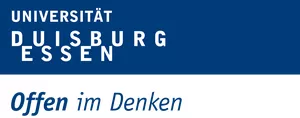Environmental Toxicology (M.Sc.)

Environmental Toxicology (M.Sc.)
Environmental Toxicology (EnviTox) is an integrated interdisciplinary Master Degree Program offered by the University of Duisburg-Essen since 2010. The study course offers knowledge on chemical properties of xenobiotics and other anthropogenic substances, their interactions with the biosphere, their detection and monitoring, and also legal aspects related to this field.
EnviTox focuses on Biology, Chemistry and Environmental Sciences, therefore students with a Bachelor Degree in biology, chemistry or ecology and similar fields of study are welcome as applicants for EnviTox.
Curriculum
The study course EnviTox consists of a more theoretical first study year and a more practical second study year.The curriculum comprises nine modules, including a 16-week internship, and the six-months Master's Thesis as final module.
The nine modules of the curriculum cover three groups of knowledge and its application. In group “Fundamentals” students are introduced to the field of EnviTox (Module “Aspects of environmental research”), they gain fundamental knowledge of the movement of substances in environmental compartments (Environmental chemistry), obtain insight into important molecular biological sciences (biochemistry and bioinformatics) and learn how to monitor chemical substances in different matrices (Environmental analytics).
The group “Effects” treats effects of pollutants on different organisms. The module “biological interaction” covers the role of microbes in drinking water supply and waste water treatment, explains how pollutants are taken up by plants and animals and how we can use population structures of different keygroups to monitor the ecological state of ecosystems. The module “Effects on biological functions” directly deals with the effects of xenobiotics and other pollutants on cells, plants and animals. Additional competencies related to the presentation of information, teamwork, information technologies and strategies to solve problems will be integrated in the courses with emphasis on multidisciplinarity.
During the practical year “Applied Environmental Toxicology” focuses on the European legislation regarding the use of xenobiotics and the implementation of monitoring, assessment and risk managing by the Industry and other stakeholders. Furthermore, in a 16 week internship students are encouraged to get first working experiences in an industrial, administrational, advisory or scientific setting in Germany or abroad.
The Master's Program will close with the Master's Thesis on current questions in Environmental Toxicology.
Language requirements
An English certification of the Common European Framework of Reference for Languages (CEFR) with a level of at least B2 is expected. For admission, TOEFL (internet based test) with a score of at least 100 or IELTS with a score of at least 6.5 is required.Internships during study
An internship is obligatory.
The duration of the internship is 16 weeks.
It is recommended to do the internship in the third semester.
The internship offers the opportunity to make first practical experiences in industry, administration and consultant or academic institutions in Germany or abroad. The aim is to run a project by applying suitable methods.
Network and Careers
Graduates in Master of Environmental Toxicology are experts in the monitoring and assessment of xenobiotics and other anthropogenic substances. They can hold position in the fields of:
- Chemical and pharmaceutical industry
- Private and administrational offices
- Analytical laboratories
- Environmental protection agencies and NGOs
- Furthermore, successful students may also continue their academic education aiming at a PhD.
Weitere Informationen zum Studiengang

418 weitere Stellen, die dich interessieren könnten
Deine AUBI-plus Jobmail
Lass deinen Bot für dich suchen! Lege deine Suchkriterien fest und lehn dich zurück. Du bekommst aktuelle Stellen für deinen Traumberuf direkt per Mail zugeschickt.
Suchbot erstellen